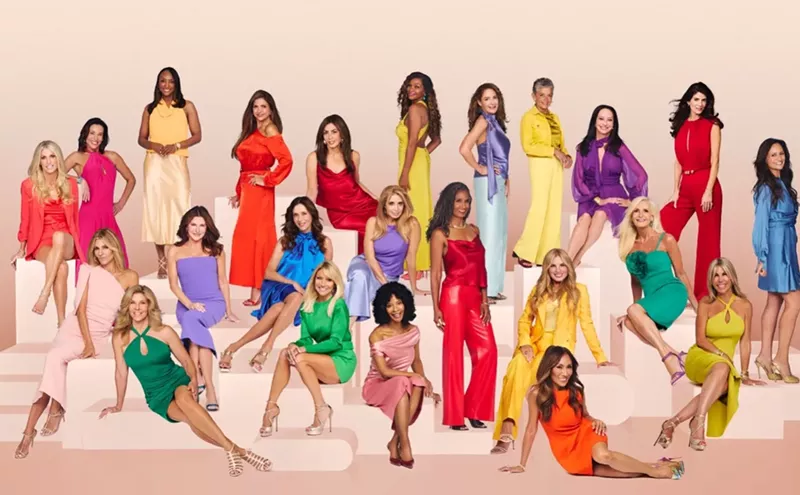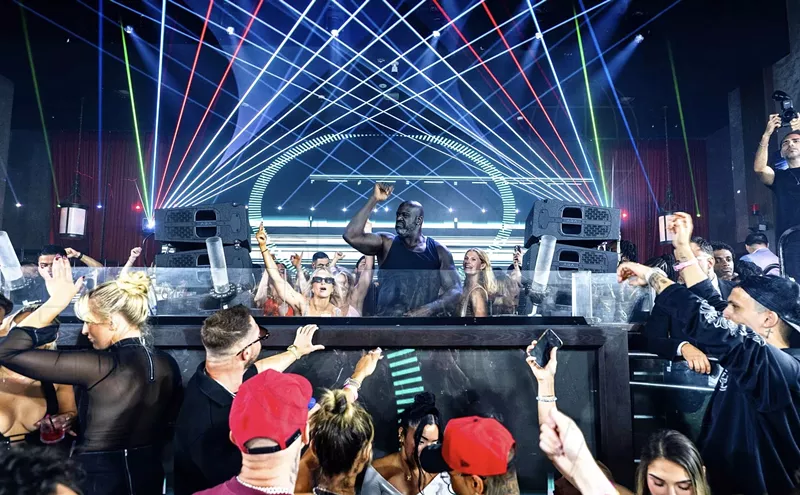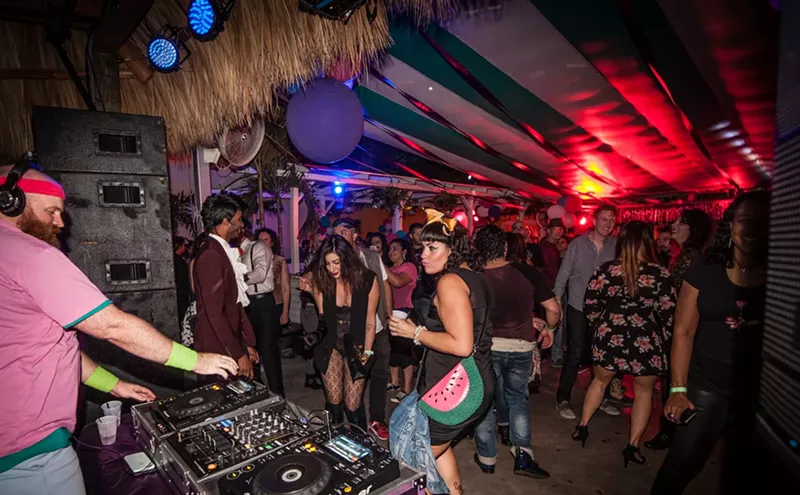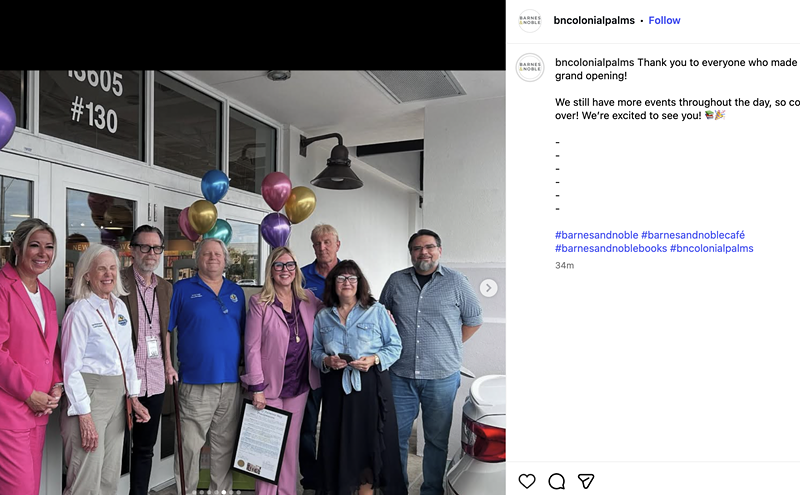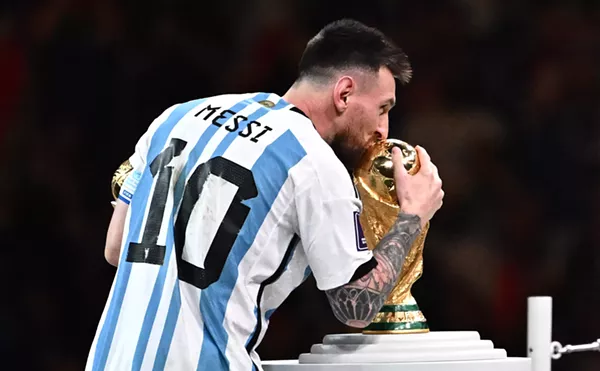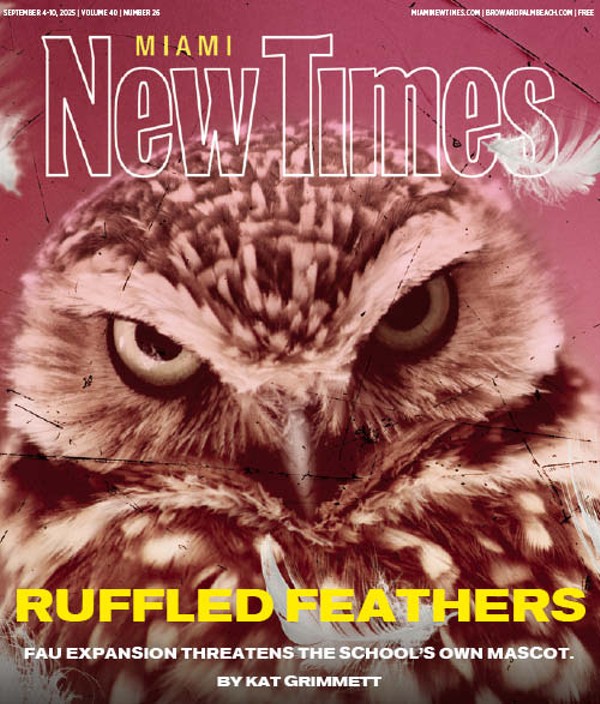In a scene set in a recording studio, this imitation Buddy runs through the chorus unaccompanied, its sing-songy lyrics tentatively coming out of his throat: "Everyday, gets a little closer./Going faster than a roller coaster./A love like yours will/Surely come my way." Through him we're able to witness an act of creation as it may have happened. The hairs on the back of my neck went up for the first and last time in the two-and-a-half-hour show. It's the only instance in which Mueller infuses any subtlety in a performance that's meant to comprise broad strokes. Not coincidentally it's also the one time he sings alone. During the rest of the show, his voice, lovely in this solo, is drowned out by the musical arrangements of the ersatz Crickets and other "reincarnated" bands.
Buddy, written by Britisher Alan Janes and reportedly a long-running hit in London, is no more or no less entertaining than any of the other specimens of the grave-robbing musical, from A Closer Walk with Patsy Cline, which re-creates the day the country-and-western star's plane crashed, to the popular cabaret show Forever Plaid, which brings back from the dead an imaginary group that never actually existed. At best these shows are vehicles for performers with good voices. At worst they're mind-numbing entertainment for audiences who don't want anything new. Buddy has elements of both.
On the one hand, it has the appealing Mueller, who is blessed with Holly's pie-wedge face and klieg light smile. He easily carries off the singer's squinty-eyed handsomeness as well as his gawky-but-fetching physical attitude, the one that says, "This suit is wearing me." (Both attributes have, of course, been famously exploited by Elvis Costello and David Byrne.) The show features Holly's well-known and much covered hits, including "That'll Be the Day," "Peggy Sue" "Not Fade Away," "Oh Boy!," "It's So Easy," "Raining in My Heart," "Maybe Baby," and "Rave On."
On the other hand, it's stuck in the muck of memory lane. Not only are the actors (Mueller is backed by a cast of dozens) denied a chance to stretch, but so is the audience. For my money it's hardly a treat to listen to these classics performed by someone who is interesting but not particularly electric onstage. After all, original versions of the songs are readily available on CD. Mueller's program bio says the actor-singer recently performed in the 40th anniversary of the Winter Dance Party Tour, the same tour that Holly, Ritchie Valens, the Big Bopper, and others were on when they made the fatal decision to abandon the tour bus in favor of chartering a small plane. (The three lost their lives, along with the pilot, when the plane went down on February 3, 1959.) A morbid undertaking if ever there were one, and one that has as much to do with preserving rock and roll history as battle re-enactments have to do with expanding our understanding of the Civil War.
While Mueller is technically polished and sexy, he hasn't got the energy as a guitar player to hold my interest for two and a half hours, at least not the way Gary Busey did in the 1978 film. The show doesn't deliver any new thought on the man who, in his short career, influenced countless others, from Bob Dylan and Paul McCartney to kids playing guitar in their parents' garages today. Chances are if you bother to show up at the Miracle Theatre, you already know that Decca, the famous record label, refused to release Holly's first recording, an early version of "That'll Be the Day." (That is, unless you're the same age as the kid sitting behind me, who asked his mom why the gigantic records on the set's backdrop -- actually reproductions of 45s -- had such big holes in them.) And many music buffs already know that the song "Peggy Sue" started life as "Cindy Lou" but was changed at the pleading of one of the Crickets, who wanted to name it after his girlfriend.
What the show needs more of are moments like the one in the recording studio, in which we get an inkling of the creative process. Mueller has the good sense not to try to duplicate Holly's famous hiccupping. Instead, in his best moments, he does conjure a man who is not trying merely to imitate Elvis Presley but is attempting to say something in a new way. Mueller's performance conveys the idea that Holly very much knew what he was doing in playing with the country-and-western trappings of his songbook by adding a chaotic-seeming, up-tempo beat. Holly's foray into a musical style was not something many producers understood in the late Fifties. Audiences loved it, though, and fellow musicians also ate it up, as evidenced by the musical's best set piece, a hilarious and high-spirited depiction of the Crickets' show at Harlem's Apollo Theater. Sharon Francis, a Florida singer who plays an Apollo performer, infuses this scene with an engaging style and high energy.
In fact the Actors' Playhouse production is, as usual, topnotch, and artistic director David Arisco's staging is full of good ideas, even if his selection of material is lame. The show is punctuated by appearances by Hipockets Duncan, the Lubbock, Texas, radio DJ credited with discovering Holly, played here by the charismatic Barry Tarallo. Buddy unfolds on Gene Seyffer's two-tiered set, which features panels that open and close, providing spots for performers who sing period advertising jingles, as well as a parade of DJs from around the country who announce Holly's various climbs up the music charts.
With a large cast, including ten onstage musicians, the show boasts a number of smart acting turns. Although Jeremy Baker adequately fills the Big Bopper's shoes and gigantic leopard-skin blazer, Fabiano Trofino, who plays Ritchie Valens, really sizzles. (Here's hoping fate will intervene before he finds himself doing a Ricky Martin tribute show twenty years from now.) Kelly Briscoe, who plays Holly's wife, Maria Elena, as well as a handful of smaller bit roles, is fetching, as is Karen Nagy as Vi Petty, wife of Holly's first producer, Norman Petty. Holly Jones, who plays Iowa beauty queen Mary Lou Sokoloff, is also just fine. In addition to Mueller, the actors to whom we get most attached are Dominic Mazzone and Michael Croiter, who play Crickets Joe B. Mauldin and Jerry Allison respectively. It's difficult to diss a show that employs so many actors (and I haven't even mentioned the other two dozen), but it would be nice if each of them gets work in something with more substance in the new year.



